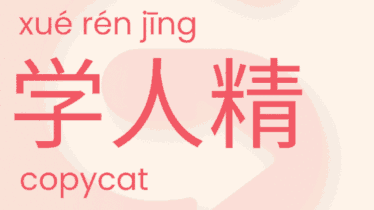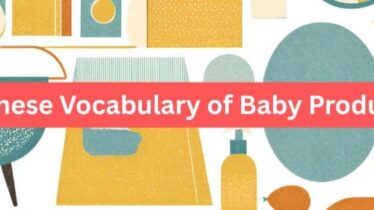Senarai panjang video Perbualan Cina Harian
Here’s a collection of daily Chinese conversations in the Mandarin language; from everyday life to office settings to online buzzwords. Listening and watching to daily Chinese conversations is useful, as it teaches you not just new vocabulary, but also teaches you how those words are used in context and conversations. Sometimes the intonation is very important, sometimes a word like 菜Cai (Vegetable) has a very different meaning (Poor) in daily conversations.
These videos are from GoEast Mandarin’s YouTube channel, from a series called Beyond Class ‘The Chinese you won’t learn in the classroom’. They’re named as such because the normal HSK curriculum becomes increasingly literature-language from HSK3 onwards. We love the HSK system for teaching Chinese, but it’s not perfect for teaching daily Chinese conversations (for this we have our Spoken Chinese Language Courses as well as our Business Chinese courses).
Daily Chinese language conversations
脑子Nǎozi (Brain) isn’t a difficult Chinese word, yet if you see this daily conversation above here, you’ll discover that it’s used to create other commonly used daily phrases, such as “Brainless” and “Your brain has some problems”.
In this daily Chinese conversation, “菜Cai” is a colloquial word: It means the level is very poor. Example Chinese sentence is:
- 你做菜的水平有点菜啊。
- Nǐ zuò cài de shuǐpíng yǒudiǎn cài a.
- Your cooking level is a little bit poor.
Is your EQ (Emotional Quotient) high or low? Michael & Ellie are grading everything from high to low 情商 Qíngshāng. Learn how to talk about it in a Chinese conversation.
Do you encounter a situation where someone is arguing for the sake of arguing? In such a conversation, you can use the word 抬杠táigàng. See the above conversation for usage.
‘Surprise’ is a Chinese word you can often use in conversations. The Chinese one is very flexible. “惊喜Jīngxǐ” can be used as a noun (‘这是一个惊喜’) or adjective (太惊喜了).
‘妙啊’ is an internet buzzword (网络流行语wǎngluò liúxíng yǔ), that means ‘wonderful’. We often use it to compliment others’ ideas.
Do you have no conscience, or your conversation partner lacks it? You can use this word in such a conversation! 良心liángxīn means conscience. When joking with friends, we often use this sentence: 你的良心不会痛吗 Nǐ de liángxīn bú huì tòng ma?
“Honestly speaking” is commonly used in English conversations, and in Chinese conversations, there is an equivalent. In the conversation above, Ellie has bought clothes for her boyfriend. But are those clothes pretty? Honestly speaking……….. “有一说一Yǒu yī shuō yī” a Chinese internet buzzword (网络流行语wǎngluò liúxíng yǔ), that means telling the truth.
‘怂sóng’ in the conversation above is a word that is used to describe a person who is shy or timid or just weak. It has a kind of negative meaning, but you can use it when joking with friends.
Do you like good gossip? Talking about how shallow people are? Then you’ll need this word to enrich your conversation: 肤浅fūqiǎn (not to be confused with 付钱Fù qián) means shallow in a rather uncomplimentary way.
We often use ‘你懂的 nǐ dǒng de’ to hint at someone, for instance:
- 我们希望你给这个帖子点赞,你懂的。
- Wǒmen xīwàng nǐ gěi zhège tiězi diǎn zàn, nǐ dǒng de.
- We hope you upvote this post, you know what I mean.
Are these daily Chinese conversations useful to your language learning? If so, subscribe to Goeast Mandarin on YouTube! You’ll find hundreds of these videos on our channel.



